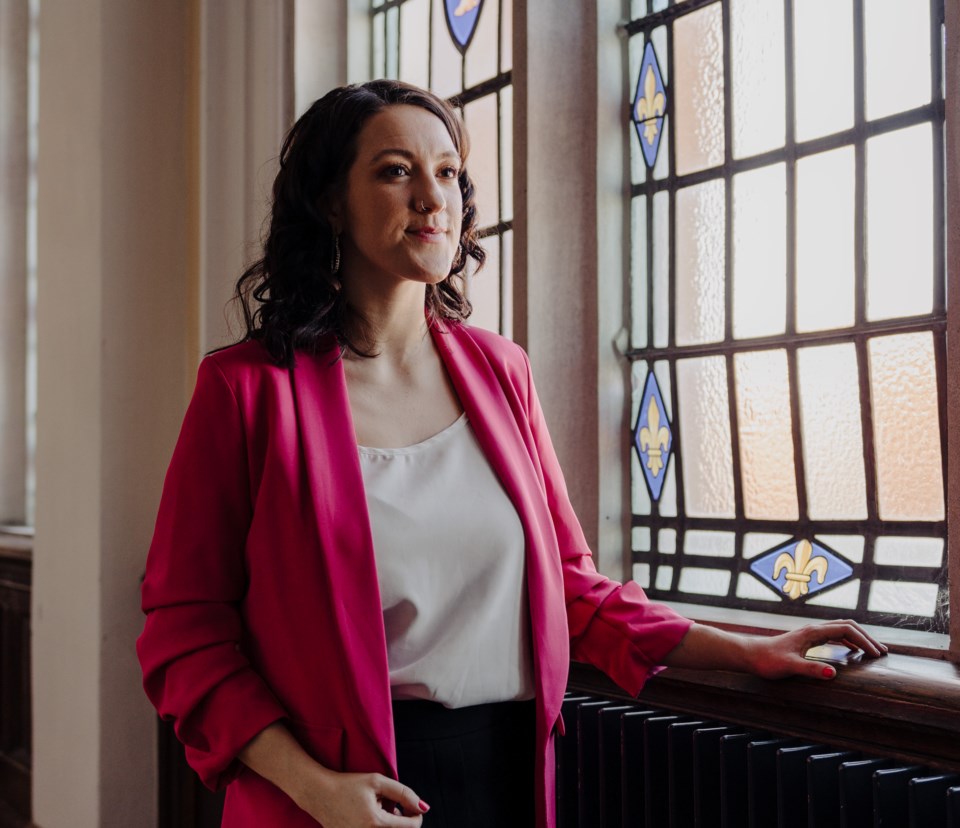A massive weight that she didn’t realize she was carrying was lifted from the shoulders of sexual violence survivor Marlee Liss when her criminal offence case was resolved through restorative justice, rather than the criminal courts.
"In the restorative process, I felt like I'd let go of a 1,000-pound weight that I didn't even know I was carrying for so long. I cried cathartic tears that I didn't even know I was holding onto," she said.
Liss, who is now a restorative justice advocate and somatic coach, recalled there was never a mention of restorative justice or alternatives when she was led into the punitive system after she was sexually assaulted in 2016.
"So I actually did end up reporting to the police, and I went through the punitive process for three years. And my very first thought was that I was going to drop the charges because I didn't want to do that. At the same time, I felt a lack of closure or justice, and I was grieving a lot."
Her case was one of Ontario's only cases in which a criminal sexual assault offence had been resolved through restorative justice.
Liss joins other experts working with victims of sexual assault in calling for alternatives to the punitive justice system to affirm their right to choose a trauma-informed process centred around their needs.
In a recent event organized by the Women's Support Network of York Region (WSN) on navigating the criminal justice system, speakers highlighted that restorative justice seeks to redress harm using principles and procedures that differ from legal systems.
Liss explained how restorative justice prioritizes repair rather than punishment.
"What that means in the context of sexual violence crimes is that we're practising turning toward the person who was harmed, paying attention to their needs, and advocating for those in order to find ways to heal and to actually stop cycles of violence, rather than just transferring the harm back and forth, which is what we see in the current system."
The WSN event at which Liss spoke brought together a panel of experts to raise awareness about sexual violence reporting, explore options for justice, and understand from various perspectives the limitations of the existing justice system when it comes to pursuing criminal charges.
According to most speakers, restorative justice and other alternative forms emphasize that justice and healing must be synonymous.
WomenatthecentrE's (a pan-Canadian survivor-led organization) program manager, registered social worker and sexual violence survivor Nicole Taylor said "with attorneys, defence lawyers, civil lawyers, and survivors, we are working to ensure that these alternative models of justice are provided to survivors as options before the criminal legal system is even brought forward."
About sexual violence reporting, Det. Ashley Smith of York Regional Police's intimate partner violence unit stated, "People don't always realize when they report that navigating the criminal justice system is difficult and can be very lengthy."
Dispelling some of the myths, she highlighted that even if an incident happened 40 years ago that doesn't involve an intimate partner relationship, it can be reported.
Zara Mercer of the Barbra Schlifer Commemorative Clinic confirmed there are many barriers to reporting violence and going through the criminal justice system.
"At our clinic, we take a trauma-informed approach to make someone feel heard, believed and validated in that process of providing them the information to make the best choice that they can for themselves."
WSN is York Region's only sexual violence crisis centre, serving the community for 31 years.
On the negative experience that many survivors have with the criminal justice system, WSN executive director Jacqueline Benn-John validated what most experts shared during the event: "It's almost secondary victimization where people can feel they've been retraumatized again."
Amrita Roy Chowdhury Majumdar is a member of the New Canadian Media Collective. She is a journalist and content writer with nearly a decade of experience working in three countries. Now working in the GTA, she continues to follow her passion by reporting on human rights violations, education, crimes, inequality and community engagement. Village Media is a partner of NCM, a member-based non-profit that showcases immigrant journalism and amplifies the work of journalists of various immigrant/ethnic backgrounds.



